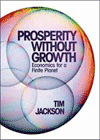Lifestyles, leisure and sustainability
Overall aims
Using a qualitative in-depth approach, this study aimed to examine the role of ‘leisure’ in relation to sustainable lifestyles and future conditions marked by higher energy prices.Context
‘Leisure’ is a much-disputed concept in lifestyles. Often positioned against ‘obligated’ time, leisure practices cover everything from television watching to holidays, from bird-watching to rally driving. Leisure accounts for around a quarter of all greenhouse gases emissions from UK household consumption. Despite this, little academic attention has been paid to sustainable leisure outside of tourism. However, the role of leisure, and in particular serious leisure and increased leisure time, is implicated in a range of scenarios for sustainable living.
Research Questions & Methods
A year-long study of eighteen middle earners was conducted utilising a series of three interviews and a week long time use diary. The first interview established the routines, values and changing lifestyles of a diverse set of people living in three different locations. The week long time use diary captured the levels and types of leisure present in the everyday lifestyles of the sample. The second interview followed up on the leisure practices identified in the diaries, examining the travel, equipment and time used in different practices as well as the meanings of the practice and the skills and competencies necessary for its performance. The research sought to understand the constraints and escalations of leisure practices, and the implications for more sustainable or higher energy priced leisure futures.
Results
Three distinct sets of findings emerge from the study. The first suggests that, at least within the short term, price shocks and instability lead to a loss of leisure through a mixture of expediency and preference, pointing to unpredictable implications for the meaningfulness of lifestyles for those who already have economically constrained leisure practices. Additionally, the results show that people are willing to sacrifice leisure time and serious leisure practices for informal work opportunities and re-training for more economically secure careers. The second set of findings looks at the relationship between intrinsically meaningful leisure practices and potential areas in which these practices can escalate, producing more environmental impacts through increased consumption. In particular the search for competence, the role of competition, the desire for comfort and safety and a reduction of 'chore-like' practices in leisure projects are highlighted as areas for market exploitation even in intrinsically meaningful practices. The final set of findings explores the relationships between routines and spontaneity in leisure lifestyles. Everyday trials and tribulations, connection with the seasons, and responses to good or bad weather mean that leisure practices and routines are subject to constant negotiation. Moreover, these negotiations can lift lifestyles out of the mundane and habitual to provide meaning and emotion, and link lifestyles to the wider environment.
Implications
At this level of income leisure practices tend to be constrained by finances, sometimes in ways which leave the individual struggling to commit to their hobby or leisure career to the fullest. Despite these constraints, leisure practices can escalate from the local and low impact; especially through the use of equipment for competence and the expectation of leisure travel. Further energy price increases or wage cuts will have straightforward environmental benefits through the reduction of leisure and tourism travel and casual leisure trips out, but more complex impacts on time consuming serious leisure practices. It is likely that rising energy prices will result in the loss of meaningful leisure practices, at least in the short term, calling into question the fairness of using pricing mechanisms to deliver sustainable lifestyles.
Output
Bedford, T, K Burningham, G Cooper, N Green, N and T Jackson 2011. Low carbon leisure. Britain in 2012: Annual magazine of the ESRC: 11.
Bedford, T, K Burningham, G Cooper, N Green and T Jackson. Serious leisure and sustainability: an examination of the escalation of practice. Currently being revised for resubmission to Environment & Planning A.
Green, N, T Bedford and J Spinney (in preparation). ICTs, leisure and sustainability. In J Rutterand M Vanden Abeele (Eds) New Technologies and the Changing Landscapes of Leisure.





